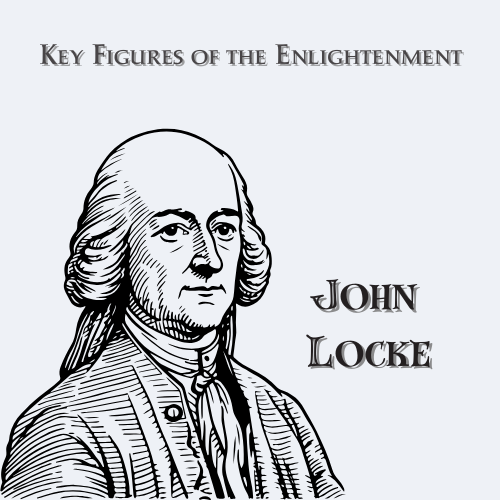
John Locke
Share
Have you ever heard the phrase "life, liberty, and property"? That idea came from a man named John Locke, one of the most important thinkers of the Enlightenment. Born nearly 400 years ago, Locke’s ideas helped shape modern democracy and inspired revolutions—including the one that created the United States of America. Let’s explore who he was, what he believed, and why we still talk about him today.
Early Life & Education
John Locke was born on August 29, 1632, in a small village called Wrington, in England. His father was a lawyer and had fought in the English Civil War. Young John grew up during a time when people were asking big questions about kings, religion, and freedom.
He was a bright student and went to the famous Westminster School in London and later to Oxford University. At first, Locke studied classical subjects like Latin and Greek, but he found them boring! Instead, he got more interested in science and medicine, especially after meeting a famous scientist named Robert Boyle.
Locke later studied medicine and even worked with doctors, but what he really loved was thinking and writing about how people should live and be governed.
Locke’s Big Ideas
John Locke believed that people are born with natural rights. That means everyone is born with the right to:
- Life
- Liberty (freedom)
- Property (owning things)
He argued that governments exist to protect these rights, and if a government fails to do so—or becomes a tyrant—then people have the right to change it. This was a radical idea at the time, especially when kings claimed they had a “divine right” to rule over everyone.
Locke also believed that:
- People are not born good or bad, but are shaped by their experiences (this idea is called the blank slate, or tabula rasa).
- Governments should be based on the consent of the people, not just royal power.
- Power in government should be limited, and rulers must follow the law.
In his famous book Two Treatises of Government (1689), Locke wrote: “Men being… by nature, all free, equal and independent, no one can be… subjected to the political power of another, without his own consent.” This was a bold challenge to the idea that kings and queens had absolute power.
Locke’s Influence on the World
John Locke didn’t lead armies or become a king himself, but his ideas were more powerful than weapons. His writings influenced the Glorious Revolution in England where the king was replaced and Parliament gained more power, and the American Revolution where colonists fought against British rule. Thomas Jefferson, who helped write the American Declaration of Independence, used Locke’s ideas almost word for word. For example, Locke wrote: “no one ought to harm another in his life, health, liberty, or possessions.” and Jefferson wrote: “life, liberty, and the pursuit of happiness.” Locke’s beliefs helped shape constitutions, human rights laws, and the idea of limited government in many countries.
Why Locke Still Matters
Today, Locke’s ideas help us understand what freedom, justice, and government by the people mean. Every time we vote, speak freely, or read about our rights, we are living in a world that John Locke helped imagine.
He once said, “The end of law is not to abolish or restrain, but to preserve and enlarge freedom.” In other words, laws should protect our freedom, not take it away. That’s a message that still matters today.
